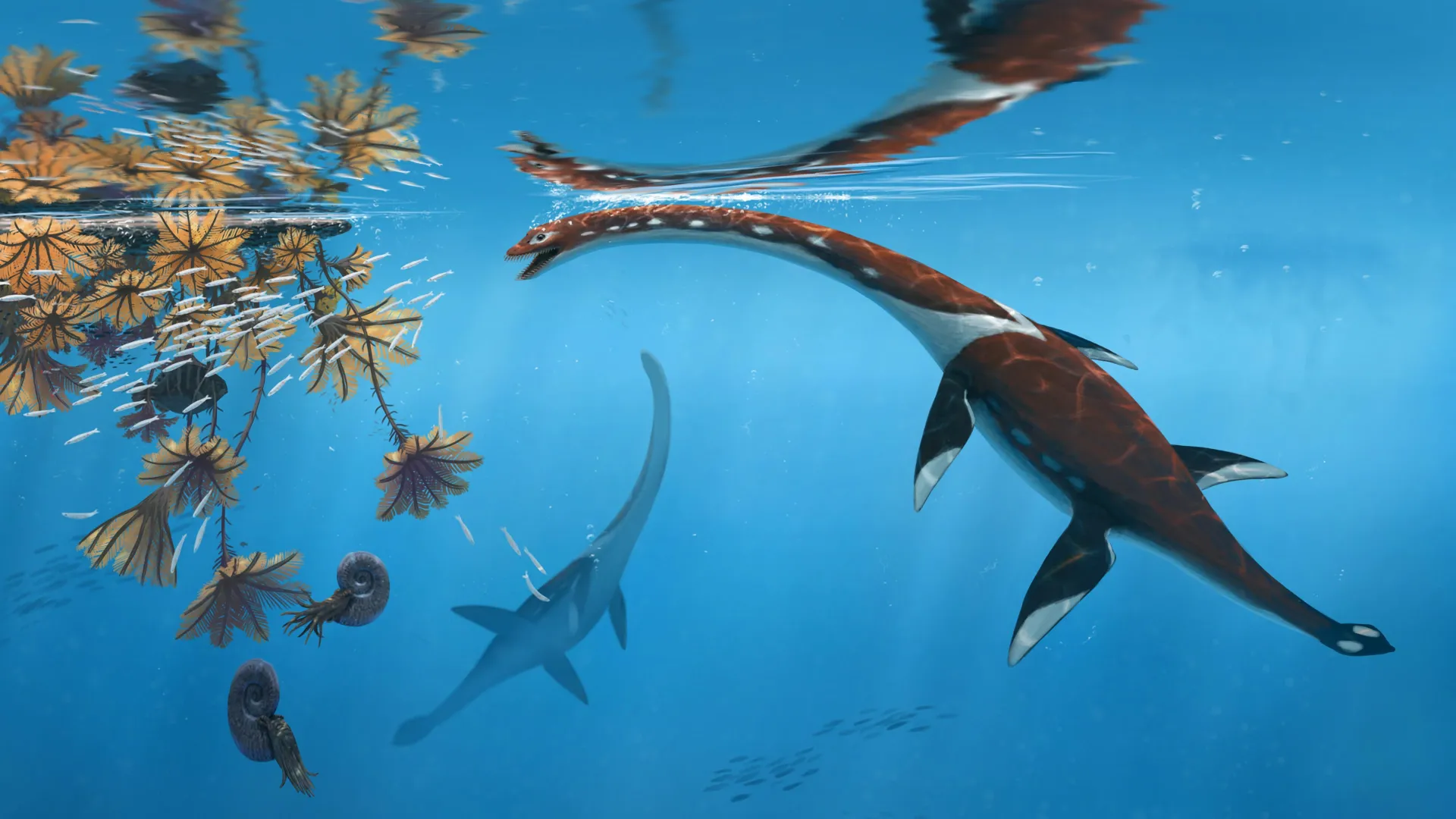Now Reading: 47-Year-Old Fossil Reveals New Jurassic Marine Predator
-
01
47-Year-Old Fossil Reveals New Jurassic Marine Predator
47-Year-Old Fossil Reveals New Jurassic Marine Predator

Rapid Summary
- Paleontologists have identified a new species of ancient marine reptile, Plesionectes longicollum, from Germany’s Posidonia Shale fossil beds.
- The discovery expands knowledge of prehistoric ocean ecosystems from nearly 183 million years ago (early Toarcian period during Jurassic era).
- The specimen,excavated in 1978,is nearly complete with preserved remnants of soft tissue and displays unique anatomical features distinguishing it from previously known plesiosaurs.
- Research was led by Sven Sachs (Naturkunde-Museum Bielefeld) and Dr. Daniel Madzia (Polish Academy of Sciences) and published after thorough reassessment of the fossil’s anatomy.
- Plesionectes longicollum is the oldest known plesiosaur found in Holzmaden and has been classified as a new genus despite being immature when it lived.
- The work highlights increased diversity at the Posidonia Shale site and sheds light on marine evolution during a time marked by environmental shifts such as an oceanic anoxic event.
- Fossil specimen SMNS 51945 is housed at Stuttgart State Museum of Natural History.
Indian Opinion Analysis
The discovery of Plesionectes longicollum reinforces the scientific importance of global efforts to study Earth’s ancient ecosystems.For India, this research underlines how cross-disciplinary collaboration between paleontology experts can result in groundbreaking advancements that deepen understanding about planetary history. Even though distant geographically, such discoveries resonate with Indian universities actively advancing geological studies linked to India’s own rich fossil sites like Narmada Valley or Kutch Basin.
Equally intriguing are implications for climate studies. Insights into environmental disruptions during early Toarcian oceans may inform India’s ongoing research on ecological impacts borne by historical climate shifts – facilitating better anticipation strategies for future challenges related to biodiversity loss or ocean health. Neutral yet constructive messaging ensures even an indirect takeaway extends shared knowledge across nations prioritizing education funding or collaborations over exploratory sciences.
























